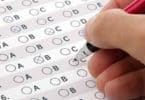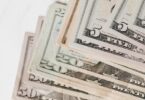Financial Reporting Quiz (Business Reporting):
Error includes
(a) Mathematical mistakes
(b) Mistakes in applying accounting policies
(c) Oversights of misinterpretation of facts
(d) All of these
__ is the process of determining the monetary amounts in which the elements of financial statements are recognized and carried in the financial statements.
(a) Recognition
(b) Addition
(c) Measurement
(d) Carrying
In selecting an accounting policy, we should review ____
(a) The standard only
(b) The interpretation only
(c) Framework only
(d) All of these
Borrowing costs do not include
(a) Interest on debentures
(b) Incremental administrative fees for raising loans
(c) Dividend declared to equity shareholders
Related: Business Analytics Questions
An item of property, plant, and equipment that qualifies for recognition as an asset shall be measured at
(a) Cost
(b) Market price
(c) Replacement value
(d) Opportunity cost
An entity shall cease capitalizing borrowing costs when
(a) Expenditure on the asset is being incurred
(b) Borrowing costs are being incurred
(c) The asset is materially ready for its intended use
__ is the residual interest in the assets of an entity after deducting all liabilities
(a) Capital
(b) Net Asset
(c) Depreciation
(d) Equity
A __ is the liability of uncertain timing and uncertain amount.
(a) Provision
(b) Reserve
(c) Current liability
Related: mean, median mode test
__ are employee benefits that are payable after the completion of employment
(a) Retirement benefits
(b) Post-employee benefits
(c) Share-based payments
Finance leases are accounted for similarly to:
(a) Cash transaction
(b) Credit transaction
(c) Leaseback transaction
(d) Long forgiveness
Property, plant, and equipment are defined as:
(a) Tangible assets held for sale in the ordinary course of business
(b) Tangible assets held to earn rental or for capital appreciation, or both
(c) Tangible assets used in the process of production or supply of goods or services or for rental to others
Which of the following is not an example of a potential ordinary share?
(a) Standard preference share
(b) Convertible preference share
(c) Stock warrant
(d) Convertible debt
Related: statistics quiz
Two entities are not necessarily associated parties if:
(a) One entity has significant influence over the other.
(b) One entity has control over the other.
(c) The entities share joint control over a third entity
(d) One entity has joint control over the other.
In a land lease, if the title does not pass to the lessee at the end of a lease, it is usually treated as a ‘Finance lease.’
(a) Statement is true
(b) Statement is false
(c) Statement is not relevant
The cost of an intangible asset at initial recognition is measured at its fair value when
(a) It is internally generated
(b) It is acquired as a part of the business combination
(c) It is acquired by way of a government grant
(d) Both (b) and (c)
Related: project management questions and answers
Cash payments to acquire the entity’s shares (i.e., treasury shares) are:
(a) Cash outflows from operating activities
(b) Cash outflows from investing activities
(c) Cash outflows from financing activities
When, after the end of the reporting period, an event occurs that is indicative of conditions that arose after the end of the reporting period:
(a) The entity discloses the nature and effect of the event in the financial statements.
(b) The entity adjusts the related amounts recognized in the financial statements.
(c) Both of the above statements are true.
Consumable stores are
(a) Inventories
(b) Property, Plant, and Equipment
(c) Investment Property
(d) Intangible Asset
A property developer must classify properties that it holds for sale in the ordinary course of business as
(a) Inventories
(b) Property, Plant, and Equipment
(c) Financial Assets
(d) Investment property
Adjusting events are those that:
(a) Provide evidence of conditions that existed at the end of the reporting period
(b) Are indicative of conditions that arose after the end of the reporting period
(c) Are favorable or unfavorable and indicative of conditions that arose after the end of the reporting period
Related: Fundamentals of interpersonal communication quiz
Theoretical ex-rights price (‘TERP’) is calculated when there is a:
(a) Bonus issue
(b) Right issue
(c) Stock split
__ are resources controlled by the entity due to past events and from which future economic benefits are expected to flow to the entity.
(a) Assets
(b) Income
(c) Liability
(d) Current assets
A biological asset used in agricultural activity whose fair value is readily determinable without undue cost or effort is accounted for using:
(a) The fair value model.
(b) The cost or fair value models (an accounting policy choice).
(c) The cost model.
The original cost at which an asset or liability is acquired is known as __
(a) Carrying amount
(d) Replacement cost
(c) Historical cost
(d) Purchase price
What is a conceptual framework for accounting?
(a) A set of rules and regulations
(b) A set of financial statements
(c) Components of financial statements
(d) A set of principles underpinning financial reporting
Related: Rural Business Marketing Questions
Which of the following is not a minimum item on the face of the statement of comprehensive income?
(a) Revenue
(b) Finance cost
(c) Deferred tax
(d) Profit or Loss
Which of the following is not a requirement for current liabilities?
(a) Expected to be settled in the entity’s operating cycle
(b) Held primarily for trading
(c) Expected to be settled within 12 months from the reporting period
(d) Entity holds an unconditional right to defer settlement for over 12 months after the reporting period
The useful life of an intangible asset with finite useful life is reviewed at __
(a) Every year
(b) At the end of a useful life
(c) In case of any changes in accounting, estimated
Liquidation of a major customer after the end of the period end is __
(a) Adjusting events
(b) Non-adjusting event
(c) Error
(d) Changes in estimate
Activities that result in changes in the size and composition of equity capital and borrowing of an entity are called:
(a) Operating Activity
(b) Investment activity
(c) Income-producing activity
(d) Financing activity
Related: inventory management interview questions
The principal revenue-producing activity of an entity is called __
(a) Operating Activity
(b) Financing Activity
(c) Investment activity
A __ is an operating segment or results from aggregating two or more operating segments that meet quantitative thresholds.
(a) Joint Venture
(b) Associates
(c) Reportable segment
……….is the amount of income taxes payable on the taxable profit for a period, under rules established by the tax authorities
(a) Tax expense
(b) Tax base
(c) Deferred tax
(d) Current tax
Consideration which varies upon certain future events which may or may not occur is called __
(a) Variable consideration
(b) Future consideration
(c) Agreed price
An intangible asset is identified when
(a) It is separable
(b) It arises from contractual or other legal rights, regardless of whether those rights are transferable or separable from the entity
(c) Either (a) or (b)
Related: Financial management practice exam
A statement showing information on the increase or decrease in a net asset or wealth of an entity is called __
(a) Statement of financial position
(b) Statement of comprehensive income
(c) Cash flow statement
(d) Statement of Changes in equity
The operating lease is :
(a) Short-term agreement
(b) Long-term agreement
(c) Medium term agreement
An entity assesses inventories for impairment-
(a) Only when there are external indicators that an impairment has occurred
(b) On each reporting date
(c) Only when there are internal indicators that an impairment has occurred
Profit is :
(a) Total revenue – Implicit cost
(b) Total revenue – Explicit
(c) Total revenue – Explicit and Implicit cost





